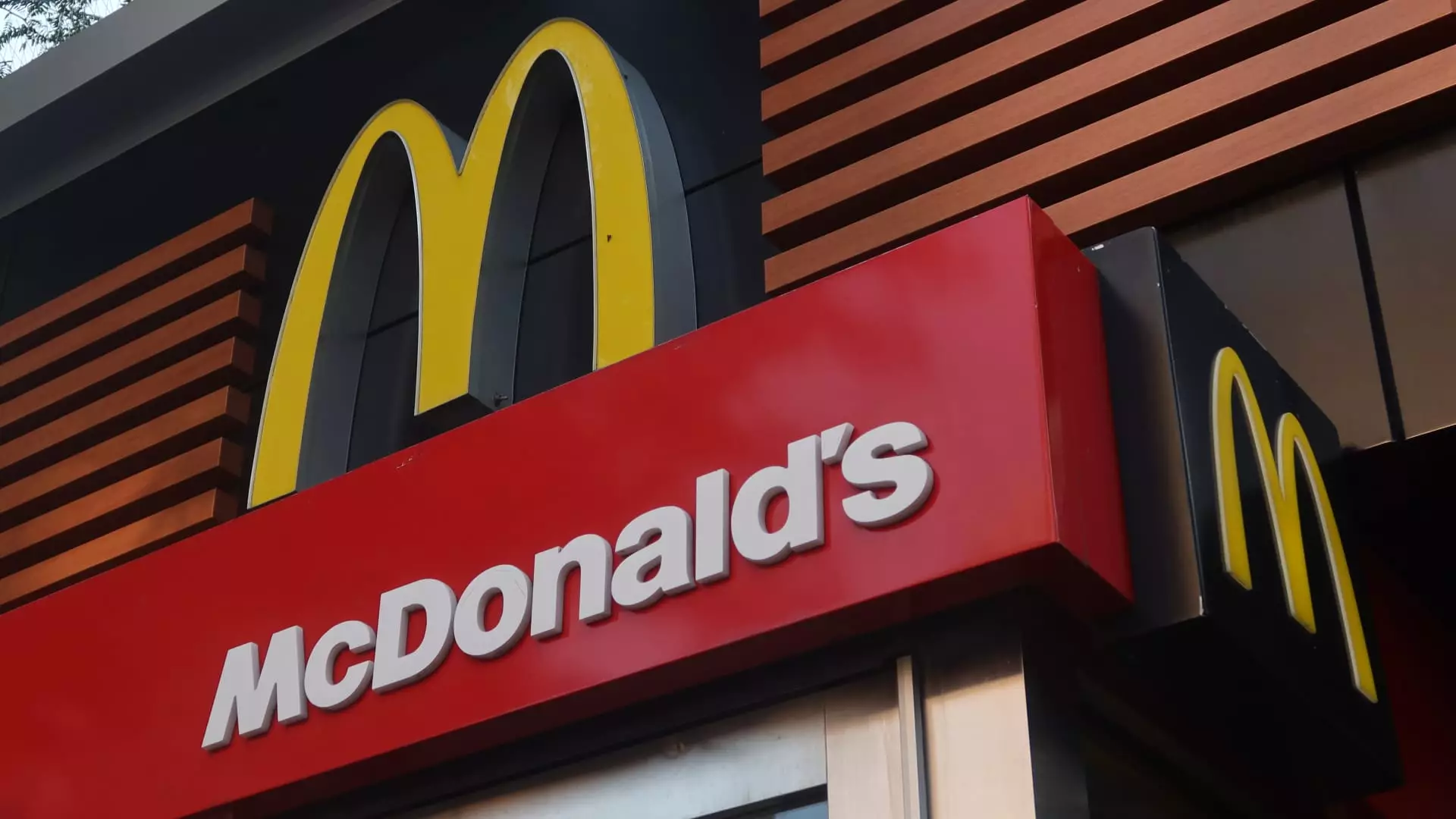In its recent earnings report, McDonald’s paints a picture of resilience and optimism, exceeding analyst expectations and showcasing a modest yet impressive increase in revenue and profits. However, beneath this veneer of success lies a troubling reality—one rooted in the persistent and growing economic hardship faced by its core low-income customer base. While executives trumpet increased sales and new promotional efforts, they secretly reveal an underlying concern: the fragile financial footing of millions who rely on fast food for sustenance, not convenience. This disconnect reveals a glaring flaw in corporate priorities—celebrating short-term gains while neglecting the social consequences of a widening economic divide.
The chain’s rebounding sales are partially driven by enticing promotions like the recent return of Snack Wraps and limited-time meal deals, designed to lure budget-conscious consumers. Yet, these efforts seem more like band-aids on a much deeper wound—an economic hemorrhage affecting those who have less, but need support the most. As CEO Chris Kempczinski admits, the company remains cautious about the “overall near-term health” of U.S. consumers, particularly those with limited income. This admission, buried within corporate earnings, underscores a painful truth: economic inequality is not merely a government problem but one that corporations like McDonald’s inadvertently perpetuate through inaction and superficial solutions.
While rises in same-store sales and international growth seem promising, these figures obscure a more sobering story. Rising sales in international markets reflect different economic realities—markets that are less saturated and more receptive to fast-food value propositions. Conversely, in the U.S., the decline in visits by low-income consumers signals a troubling trend: economic pressures are forcing essential spending cuts, impacting their daily meals. The narrative spun by McDonald’s executives overemphasizes short-term victories while dismissing the long-term implications of a widening socio-economic chasm that the company’s business model arguably sustains.
Superficial Solutions and the Evasive Politics of Corporate Responsibility
Strategic promotions like the $5 meal deal or the revived Snack Wraps project an image of innovation and affordability. However, these tactics merely scratch the surface of a pressing issue: the systemic failure to address the affordability crisis faced by low-income households. McDonald’s, a symbol of accessible fast food, is increasingly faced with ethical dilemmas. Should it simply continue tweaking menu prices to sustain sales, or should it leverage its influence for genuine change?
By focusing on “value” and “affordability” scores, McDonald’s appears to be aware of the socioeconomic tensions but chooses to frame these as marketing challenges rather than moral imperatives. The return of the Snack Wraps and the continuation of promotional prices signal a reactive stance, a tactic aimed at maintaining investor confidence rather than fostering meaningful support. It’s hardly convincing that one or two menu adjustments can combat the broader economic forces that marginalize millions, including wage stagnation, rising living costs, and the erosion of social safety nets.
Furthermore, McDonald’s international success risks masking the deeper question of what corporate responsibility truly entails. Given that these international markets are less competitive and more receptive to value pricing, it’s worth questioning whether global growth is being used as a cover for avoiding reforms that could truly improve quality of life. In essence, the company’s strategy seems to favor short-term revenue spikes over sustainable social progress, revealing a troubling prioritization that sidelines moral duty in favor of shareholder returns.
The Need for Authentic Change; a Call Beyond Corporate Spin
If McDonald’s genuinely aimed to be a leader, it would leverage its vast influence to foster systemic change rather than manage perceptions. The company has an ethical obligation to engage in more ambitious actions—supporting living wages, advocating for food justice, and helping bridge the gap that separates economic classes. Instead, it appears content to manipulate consumer perceptions through superficial promotions and market segmentation strategies, while the core issue remains unaddressed.
Moreover, the narrative of “improved consumer perception” and “better value” should serve as a wake-up call, not as a justification for complacency. How much longer can the fast-food industry, which touts convenience and affordability, ignore the socioeconomic realities its core customers face? If corporations like McDonald’s choose to remain silent on these issues, they are complicit in perpetuating inequality rather than alleviating it. Genuine progress requires acknowledgment of the systemic barriers faced by the low-income population and a commitment to real social responsibility—beyond profits and market share.
Ultimately, the earnings report reveals more than just financial performance; it exposes how corporate interests often sideline social justice issues in favor of maintaining a veneer of success. The question remains: will McDonald’s rise to the challenge as a catalyst for change, or will it continue to serve up temporary solutions that do little to address the roots of economic hardship? The choice lies not just in menu adjustments, but in whether the corporation will prioritize ethical responsibility over fleeting financial wins.

